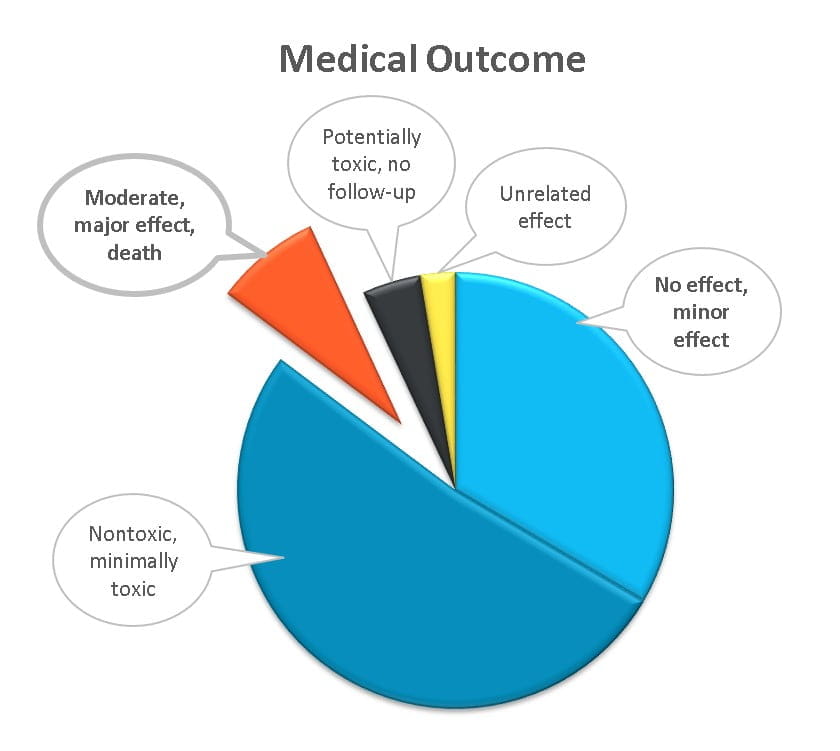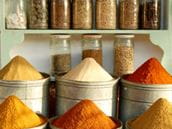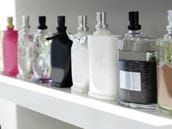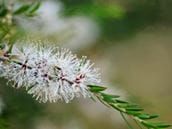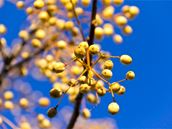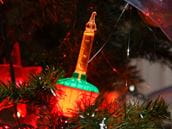
Bubble Lights - The Hazards of Nostalgia
Bubble lights may contain methylene chloride. If swallowed or absorbed through the skin, methylene chloride becomes carbon monoxide inside the body.
Displaying 81 - 90 of 388 results for "swallowed poisoning"
Bubble lights may contain methylene chloride. If swallowed or absorbed through the skin, methylene chloride becomes carbon monoxide inside the body.
Some ordinary kitchen ingredients can be harmful if children swallow large amounts. Examples include alcohol-based flavoring extracts, oil of wintergreen, and nutmeg. Poppy seeds can cause a positive drug screen if someone eats a lot shortly before a drug test.
Micellar water is a cosmetic product that is used to remove dirt, oil, and makeup from the face. Micellar water is made up of water mixed with soap, hydrating chemicals, and perfumes. If swallowed, it is unlikely that a small amount of micellar water will result in poisoning, but it may cause vomiting or diarrhea. Micellar water can also be irritating if it gets in the eyes.
Soaps are anionic surfactants used for washing and cleaning. Swallowing a small amount of soap is usually not harmful. It can irritate the mouth and throat and cause mild gastrointestinal symptoms such as nausea, vomiting, and diarrhea. Some people may be allergic to some of the ingredients in soap, which can result in difficulty breathing, skin irritation and rashes.
Most fragrance products contain alcohol, which can cause serious effects in children. Fragrance products can also cause skin irritation and allergic reactions, which will usually go away if you stop using the product.
In 2019, U.S. poison control centers provided telephone guidance for over 2.1 million human poison exposures. That's one poison exposure reported every 15 seconds. While poisoning affects ALL age groups, peak poisoning frequency occurs in one- and two-year-olds, with children younger than 6 years comprising nearly half of poison exposures (43%). Since 2008, poisoning fatalities have exceeded those from motor vehicle traffic.
In 2017, U.S. poison control centers provided telephone guidance for nearly 2.12 million human poison exposures. That's one poison exposure reported every 14.9 seconds. While poisoning affects ALL age groups, peak poisoning frequency occurs in one and two year olds, with children younger than 6 years comprising nearly half of poison exposures (45%). Since 2008, poisoning fatalities have exceeded those from motor vehicle traffic.
In 2018, U.S. poison control centers provided telephone guidance for nearly 2.1 million human poison exposures. That's one poison exposure reported every 15 seconds. While poisoning affects ALL age groups, peak poisoning frequency occurs in one- and two-year-olds, with children younger than 6 years comprising nearly half of poison exposures (44%). Since 2008, poisoning fatalities have exceeded those from motor vehicle traffic.
Tea tree oil has been used as a "natural" remedy for a long time, especially for skin afflictions. There is very little scientific evidence that tea tree oil is effective for most skin conditions. It is poisonous if swallowed, so it should not be used in or around the mouth.
Chinaberry trees are an invasive species that can be harmful if any part is chewed on or swallowed. Ingestions of small amounts of plant material can cause gastrointestinal upset such as vomiting and diarrhea within 1 hour. Most reports of large ingestions resulting in severe symptoms have occurred in animals.
Don't guess what you should do. Get accurate Poison Control answers online or by phone. Both are free and confidential.
or CALL 1-800-222-1222
The Poison Post® is a free, quarterly
e-newsletter delivering poison prevention tips right to your inbox!
Learn the Poison Help jingle in English or Spanish. Use these jingles to teach the Poison Control number: 1-800-222-1222. Available for download.
